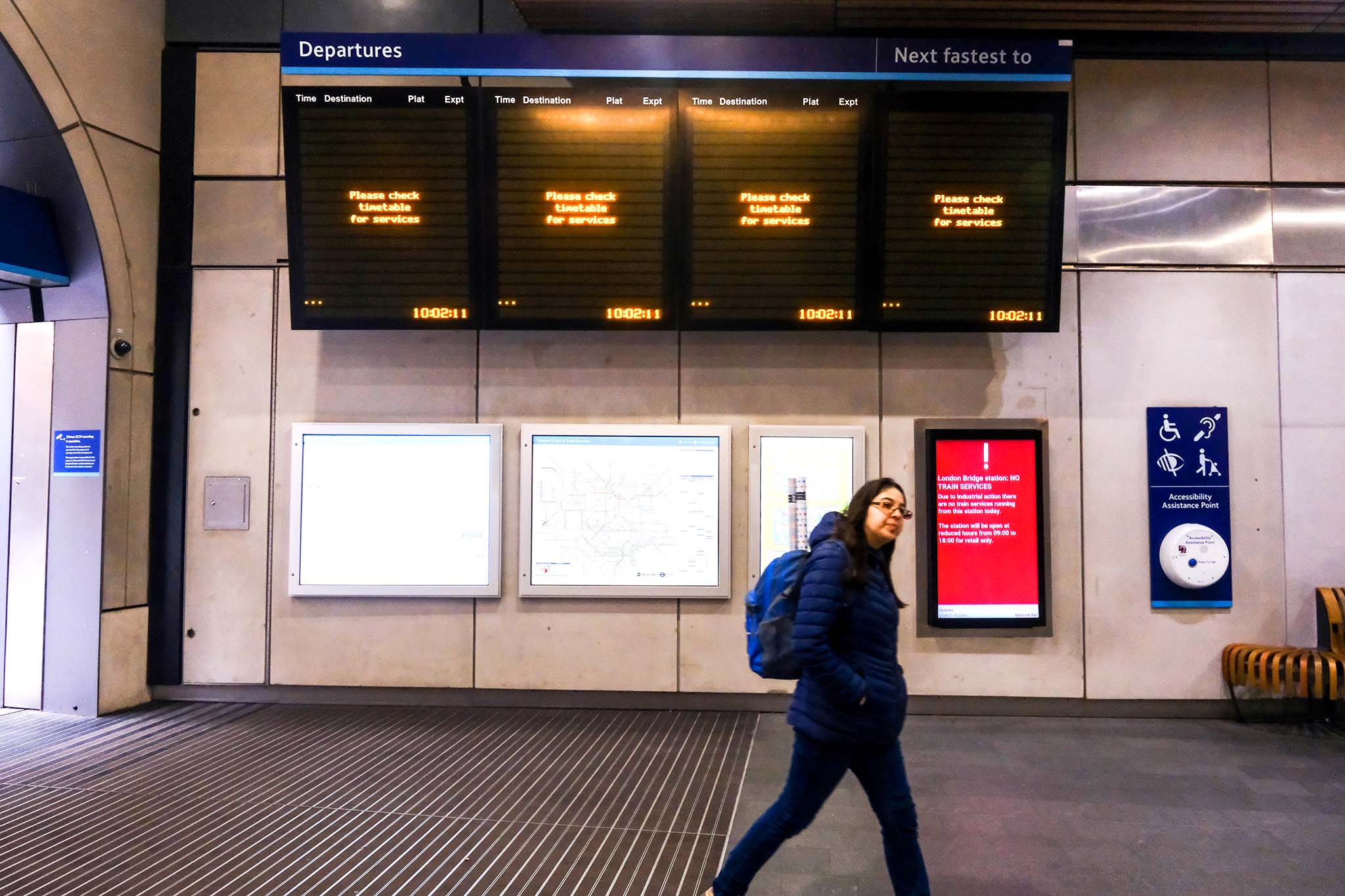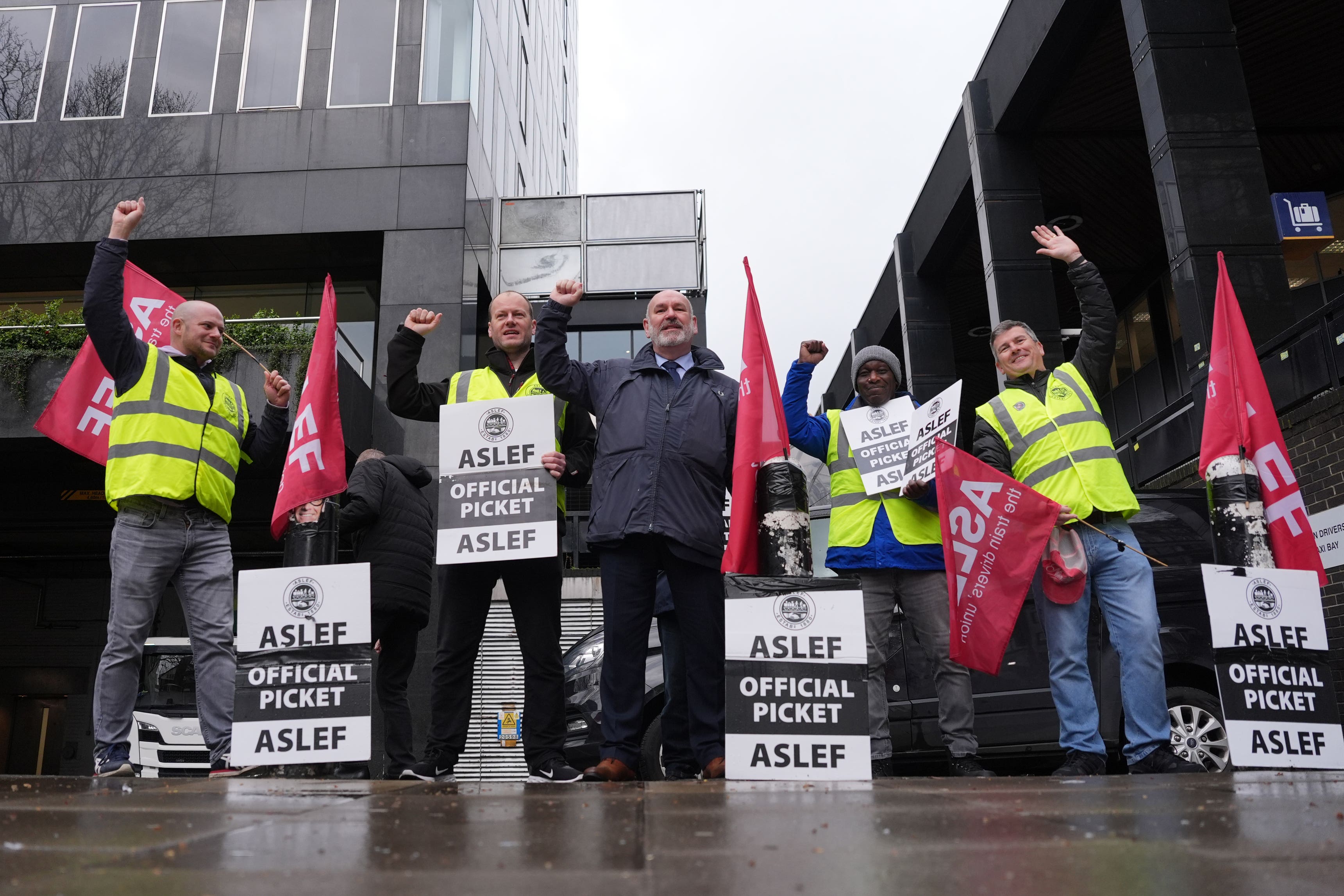Commuters face three more months of train strikes as the drivers’ union Aslef announced further walkouts less than 48 hours after the government offered a pay deal.
Sir Keir Starmer has been warned that the unions will “keep demanding more” after it was revealed that members working for LNER – the government-owned train operator of the East Coast Main Line – plan to walk out at weekends from 31 August to 10 November.
The union says the 22 days of planned strikes are in response to “bullying by management and persistent breaking of agreements by the company”, but the Tories have warned that taxes will have to rise to meet more union demands.
On Wednesday, Aslef and the government announced that a settlement had been negotiated in the train drivers’ pay dispute that began in July 2022 and has caused misery for thousands of passengers.
As the announcement was made, transport secretary Louise Haigh said: “When I took this job, I said I wanted to move fast and fix things – starting by bringing an end to rail strikes.”

The LNER strikes are unrelated to that dispute, but government critics said the three-year offer to Aslef had set a precedent that would encourage further action.
Former Conservative Party leader Sir Iain Duncan Smith told The Independent: “The government has basically shown itself to be quite soft in terms of pay rises, and the unions are going to keep demanding more. We know where [the money] is going to come from – it’s going to come from higher levels of taxes and borrowing.
“There’s only one solution in life: if you want to spend more, then you either have to tax more, borrow more or cut back on spending. It has to be one of the three options. It’s a very simple equation, and [Labour] don’t want to talk about it.
“But right now there’s a plan to cut winter fuel payments for pensioners – pensioners’ incomes are going to be put to the sword.” Chancellor Rachel Reeves announced last month that the winter fuel allowance would become means-tested.
Tory leadership candidate James Cleverly said the Labour government had been “played by its union paymasters”.
“This latest wave of strikes will be devastating for families who rely on train travel to see their loved ones,” the shadow home secretary said.
Former Brexit negotiator David Frost said on social media that Ms Haigh “must be feeling really stupid as Aslef go on strike again after she’s just given them a massive no-strings pay rise”.
As she hailed the probable end of the train drivers’ dispute this week, Ms Haigh said: “The Conservatives deliberately dragged strikes out for two years, causing misery for passengers, damaging our economy, and costing the taxpayer as much as £850m in lost revenue. Labour will always put passengers first.”
The deal agreed between the government and Aslef chiefs, which the union’s members will now vote on, is for increases of 5 per cent for 2022 to 2023, 4.75 per cent for 2023 to 2024, and 4.5 per cent for 2024 to 2025. It would raise the average train driver’s salary from £60,000 to £69,000.

Aslef general secretary Mick Whelan said of the new strikes: “The continued failure of the company to resolve longstanding industrial relations issues has forced us into this position. We would much rather not be here. But the company has brutally, and repeatedly, broken diagramming and roster agreements, failed to adhere to the agreed bargaining machinery, and totally acted in bad faith.
“When we make an agreement, we stick to it. This company doesn’t. And we are not prepared to put up with their boorish behaviour and bullying tactics.”
An LNER spokesperson added: “Our priority focus will be on minimising disruption to customers during the forthcoming Aslef strikes, which sadly will continue to cause disruption and delays.
“We are surprised and disappointed to hear this news following recent constructive conversations. We will continue to work with Aslef to find a way to end this long-running dispute, which only damages the rail industry.”
A Department for Transport (DfT) spokesperson said: “This is extremely disappointing for passengers. The transport secretary has called on both Aslef and LNER to get around the table and work in good faith to resolve this dispute and as quickly as possible.”
LNER is the main operator between London King’s Cross, Yorkshire, northeast England and Scotland. Previous strikes by train drivers reduced services on the core line from London to Edinburgh via York and Newcastle to around 40 per cent.
Passengers were able to switch to “open-access” operators Lumo, Grand Central and Hull Trains, which duplicate a number of LNER routes.

